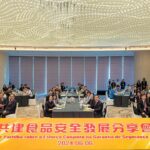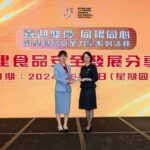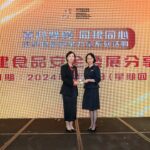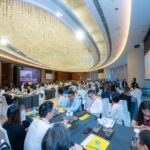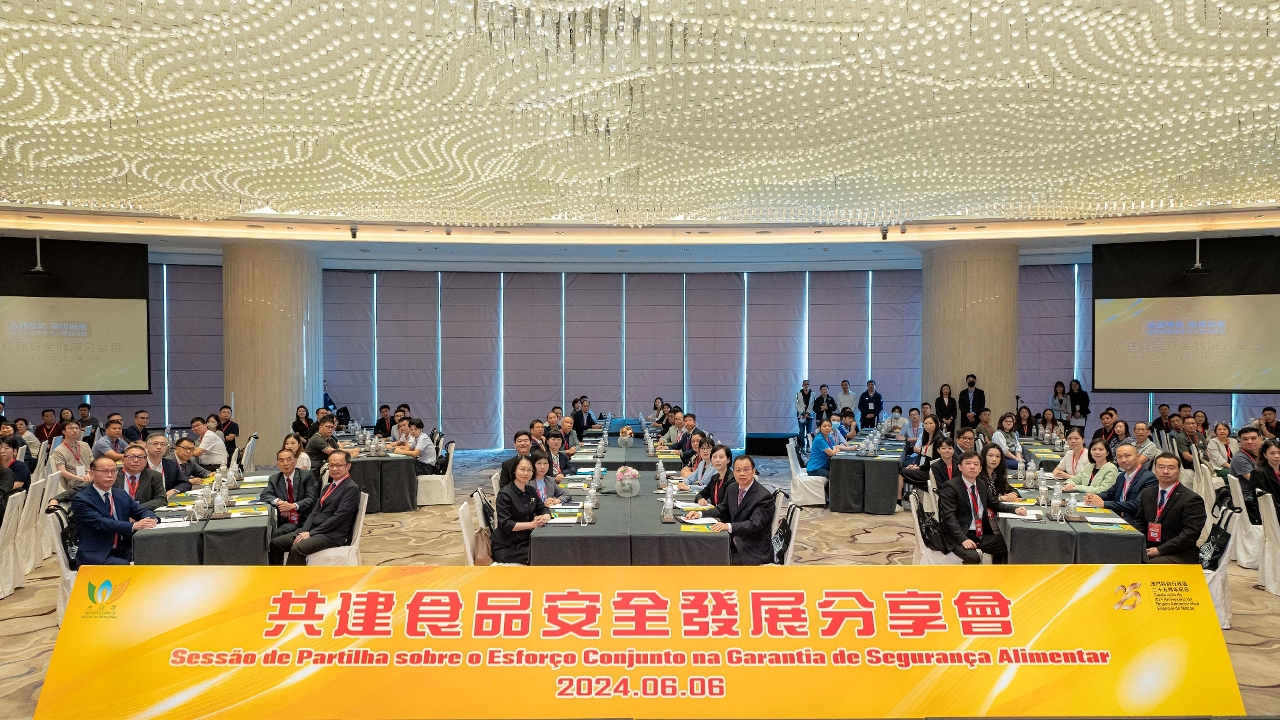 IAM holds food safety sharing session to help local food sector open up Mainland market
IAM holds food safety sharing session to help local food sector open up Mainland market
To celebrate the 75th anniversary of the founding of the People’s Republic of China and the 25th anniversary of the establishment of the Macao Special Administrative Region, the Municipal Affairs Bureau (IAM) holds “Joint Efforts in Food Safety for Double Celebration” Activity Series for two consecutive days. Among the activities, “Sharing session on Joint Development of Food Safety” was held this morning (6 June). Representatives from the General Administration of Customs of the People’s Republic of China (GACC) and Gongbei Customs District were invited to brief the local food sector on the regulation of live and fresh food for supply to Macao and the facilitation measures adopted by the Mainland for customs clearance of food produced in Macao, so as to help the local food sector open up the Mainland market by utilising these advantageous policies, create a foundation for the development of Guangdong-Hong Kong-Macao Greater Bay Area and better integrate Macao into the national development strategy.
A total of 240 representatives from the trade associations of various districts, food importers, suppliers, retailers and producers, the pastry sector, souvenir sector, representatives from the six major leisure and resort enterprises and the hotel sector were invited to attend the sharing session. During the session, Zhao Qian, Level III Principal Staff Member of Division II of Plant Quarantine of Department of Animal and Plant Quarantine of GACC, gave the attendees an introduction to the regulatory measures on fresh and live food for supply to Macao and the work supporting Macao food safety of the Mainland Customs on the theme of “Overview of regulation of fresh and live food for supply to Macao”.
In addition, Huan Ping, the Head of Division of Food Safety of Gongbei Customs District, briefed the attendees on the cooperation between the Mainland and Macao on food safety regulation and the facilitation measures for food produced in Macao to enter the Mainland market under the “Agreement on Cooperation in Safety Control of Food Products Manufactured in Macao for Exportation to Mainland China”. A representative from the Department of Food Safety of IAM also introduced the application formalities and procedures relevant to the mentioned “agreement on cooperation” to the attendees. During the session, local food enterprises were invited to share their successful experience of entering the Mainland market, so that entrepreneurs in attendance can learn from each other and exchange ideas on jointly launching the Macao brands and food produced in Macao in the Greater Bay Area and expanding to other markets in the Mainland.
For many years, IAM and the Customs in the Mainland have actively promoted innovative cooperation on cross-border regulation of food inspection and testing, so as to facilitate the launch of food produced in Macao on the Mainland market. Through the “agreement on cooperation”, the regulation plan of food produced in Macao is established to facilitate the customs clearance of food which is produced in Macao for export to the Mainland and satisfies the rules, regulations and standard requirements for food in the Mainland and expedite customs clearance of food produced in Macao.
This sharing session helped Macao enterprises learn more about the regulation of food produced in the Mainland for supply to Macao and grasp the details of the policies under the “agreement on cooperation”, so that they can improve the standards of their management technology and the quality of their products and utilise the relevant advantageous policies to open up the Mainland market.


